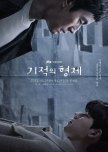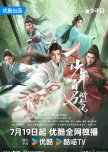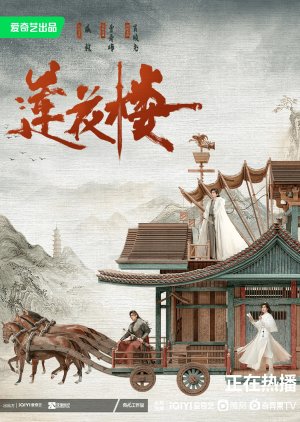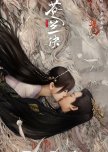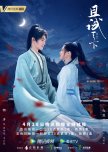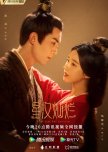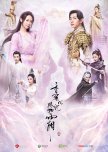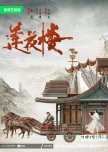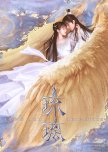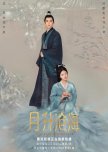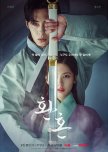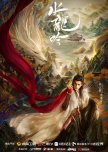
If you like Mysterious Lotus Casebook, you might like Shui Long Yin.
Both dramas are adaptations from works written by the same author, Teng PIng.
Both are wuxia (martial arts) adventure dramas featuring strong male leads with ambiguous morals and motivations.
Both have character configurations and themes that highlight martial arts prowess, honor/ chivalry, as well as teamwork, friendships, and brotherhood.
Both somewhat belong to the mystery / detective genre, although these elements may not present as the core of the story or plot.
Both dramas are adaptations from works written by the same author, Teng PIng.
Both are wuxia (martial arts) adventure dramas featuring strong male leads with ambiguous morals and motivations.
Both have character configurations and themes that highlight martial arts prowess, honor/ chivalry, as well as teamwork, friendships, and brotherhood.
Both somewhat belong to the mystery / detective genre, although these elements may not present as the core of the story or plot.
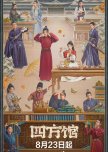

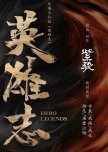
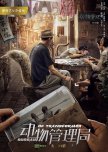
Both contain case-solving, humor, and heartfelt moments, and a grand arc that spans the entire season.
BoT is a modern, supernatural investigative procedural that pushes along the main character arc at a brisk pace. It matches the quality and style of some of the best Hollywood procedural shows in mixing side-splitting absurdist humor, astute social commentary, and heartfelt moments. The show replaces bromance with a more team camaraderie and realistic romance between ML and FL. The engaging and consequential cases and grand story arc culminates in an exciting finale.
The biggest issue is the poor subtitle quality limits the accessibility as much of the hilarity and context of the show may be bungled by subpar translation. Though fluent Chinese speakers will likely enjoy this quirky hidden gem.
BoT is a modern, supernatural investigative procedural that pushes along the main character arc at a brisk pace. It matches the quality and style of some of the best Hollywood procedural shows in mixing side-splitting absurdist humor, astute social commentary, and heartfelt moments. The show replaces bromance with a more team camaraderie and realistic romance between ML and FL. The engaging and consequential cases and grand story arc culminates in an exciting finale.
The biggest issue is the poor subtitle quality limits the accessibility as much of the hilarity and context of the show may be bungled by subpar translation. Though fluent Chinese speakers will likely enjoy this quirky hidden gem.
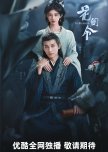
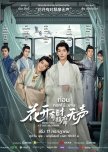
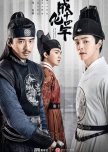
Both shows have a trio untangling a complex mystery over several smaller cases. The Sleuth of Ming Dynasty focuses more on a specific pair, and the dynamics are very different from Mysterious Lotus Casebook, but you'll still find relationships that evolve into unshakable devotion, moral ambiguity, and characters willing to put themselves in great peril for the truth (and each other). You may also appreciate that the main characters are competent adults* with significant skills.
The two main characters are Sui Zhou and Tang Fan. Sui Zhou is an excellent fighter with a traumatic past. He's laconic and mostly no-nonsense and frequently exasperated. His love language is cooking and he'd tolerate Li Lianhua in a kitchen for less than half a second. Tang Fan can't fight at all but has a brilliant mind, and unfortunately makes Fang Duobing at his poutiest/silliest look like an ascetic monk. The third major character, Wang Zhi, is a schemer with Imperial resources (he would absolutely eat Shan Gudao and Jiao Liqiao for lunch).
Important note: None of these people start off the show already 90% dead. So if you're looking for that specific vibe, it's not here.
The fighting scenes in Sleuth are very well choreographed, though they're pretty well-grounded and not as fanciful as typical wuxia combat. Even qinggong/lightness skills are limited to a couple of blink-and-you'll-miss-it moments. This could be disappointing coming off of MLC, but if you pay attention the fighting is really very well done, just not flashy. Despite the style differences, I found both shows' fight scenes to be worth watching and focused on what the characters/actors are doing. This is in contrast to many other shows where it's more about explosions, poses, CGI, and camera cuts.
Differences: Sleuth has a more consistent cast of side characters who are allowed to develop more than MLC's side characters. Although it's far from anything that actually happened, it's set in a specific year of China's history, in real places, and many characters share names and titles with real people (including the third person in the trio). So it doesn't have that timeless wuxia feeling that MLC does. And Sleuth really is a dangai (based on a danmei novel in which the two main characters are genuinely a couple, but rewritten to be acceptable under current rules) whereas MLC is not.
I followed up MLC with The Blood of Youth which I liked, but it was such a jarring contrast. Despite having some characters and arcs that on paper seemed very MLC-like, the show's mood and storytelling are just in a different realm from MLC. Sleuth was the next show I watched, and despite its obvious differences, for me there's just something similar about the vibes. So I recommend giving it a try.
*Let's not get into their supposed ages; they make even less sense than MLC's ages and timelines do
The two main characters are Sui Zhou and Tang Fan. Sui Zhou is an excellent fighter with a traumatic past. He's laconic and mostly no-nonsense and frequently exasperated. His love language is cooking and he'd tolerate Li Lianhua in a kitchen for less than half a second. Tang Fan can't fight at all but has a brilliant mind, and unfortunately makes Fang Duobing at his poutiest/silliest look like an ascetic monk. The third major character, Wang Zhi, is a schemer with Imperial resources (he would absolutely eat Shan Gudao and Jiao Liqiao for lunch).
Important note: None of these people start off the show already 90% dead. So if you're looking for that specific vibe, it's not here.
The fighting scenes in Sleuth are very well choreographed, though they're pretty well-grounded and not as fanciful as typical wuxia combat. Even qinggong/lightness skills are limited to a couple of blink-and-you'll-miss-it moments. This could be disappointing coming off of MLC, but if you pay attention the fighting is really very well done, just not flashy. Despite the style differences, I found both shows' fight scenes to be worth watching and focused on what the characters/actors are doing. This is in contrast to many other shows where it's more about explosions, poses, CGI, and camera cuts.
Differences: Sleuth has a more consistent cast of side characters who are allowed to develop more than MLC's side characters. Although it's far from anything that actually happened, it's set in a specific year of China's history, in real places, and many characters share names and titles with real people (including the third person in the trio). So it doesn't have that timeless wuxia feeling that MLC does. And Sleuth really is a dangai (based on a danmei novel in which the two main characters are genuinely a couple, but rewritten to be acceptable under current rules) whereas MLC is not.
I followed up MLC with The Blood of Youth which I liked, but it was such a jarring contrast. Despite having some characters and arcs that on paper seemed very MLC-like, the show's mood and storytelling are just in a different realm from MLC. Sleuth was the next show I watched, and despite its obvious differences, for me there's just something similar about the vibes. So I recommend giving it a try.
*Let's not get into their supposed ages; they make even less sense than MLC's ages and timelines do
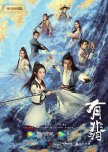
While watching this I started to make a list comparing Legend of Fei's A'Fei/Xie Yun to Di Feisheng/Li Lianhua AS A JOKE and then it got TOO REAL and I had to stop lol. (Although in some ways she's more Fang Duobing than Di Feisheng.)
I can't explain in detail because spoilers, but: dao-wielding rough young woman from outlaw fortress background ventures into jianghu for the first time and encounters a jokey, rude, pretty man who's a bit mysterious and seems not to have any martial arts. Caveat: LoF is not nearly as well made as MLC. It's riddled with bad editing and dropped storylines and low production values, and the writing is nowhere near as thoughtful. It's pretty fun, though.
I can't explain in detail because spoilers, but: dao-wielding rough young woman from outlaw fortress background ventures into jianghu for the first time and encounters a jokey, rude, pretty man who's a bit mysterious and seems not to have any martial arts. Caveat: LoF is not nearly as well made as MLC. It's riddled with bad editing and dropped storylines and low production values, and the writing is nowhere near as thoughtful. It's pretty fun, though.
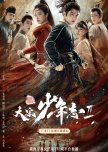

Go to the Mountains and Sea and Mysterious Lotus Casebook share a captivating blend of mystery, wuxia, and character-driven storytelling. Both dramas create immersive worlds where the protagonists embark on journeys that involve solving enigmatic cases and uncovering hidden truths.
A key similarity lies in their exploration of personal growth and redemption. The main characters in both series are shaped by their pasts, and their journeys become paths of healing and self-discovery. This introspective focus adds emotional weight to the narrative without overshadowing the action and intrigue.
Wuxia and fantasy elements are integral to the atmosphere of both dramas. From breathtaking fight sequences to encounters with mythical forces, the blending of martial arts and fantasy enhances the visual and narrative experience, drawing viewers into richly crafted universes.
Another shared theme is the value of camaraderie and trust. As the protagonists navigate the challenges ahead, they form bonds that provide support, humor, and warmth, reinforcing the importance of friendship along the way.
With stunning cinematography and scenic landscapes, both series transport viewers to visually striking worlds that heighten the sense of adventure and mystery. Their ability to balance emotional storytelling with fantasy and action makes them compelling choices for fans of the genre.
A key similarity lies in their exploration of personal growth and redemption. The main characters in both series are shaped by their pasts, and their journeys become paths of healing and self-discovery. This introspective focus adds emotional weight to the narrative without overshadowing the action and intrigue.
Wuxia and fantasy elements are integral to the atmosphere of both dramas. From breathtaking fight sequences to encounters with mythical forces, the blending of martial arts and fantasy enhances the visual and narrative experience, drawing viewers into richly crafted universes.
Another shared theme is the value of camaraderie and trust. As the protagonists navigate the challenges ahead, they form bonds that provide support, humor, and warmth, reinforcing the importance of friendship along the way.
With stunning cinematography and scenic landscapes, both series transport viewers to visually striking worlds that heighten the sense of adventure and mystery. Their ability to balance emotional storytelling with fantasy and action makes them compelling choices for fans of the genre.
